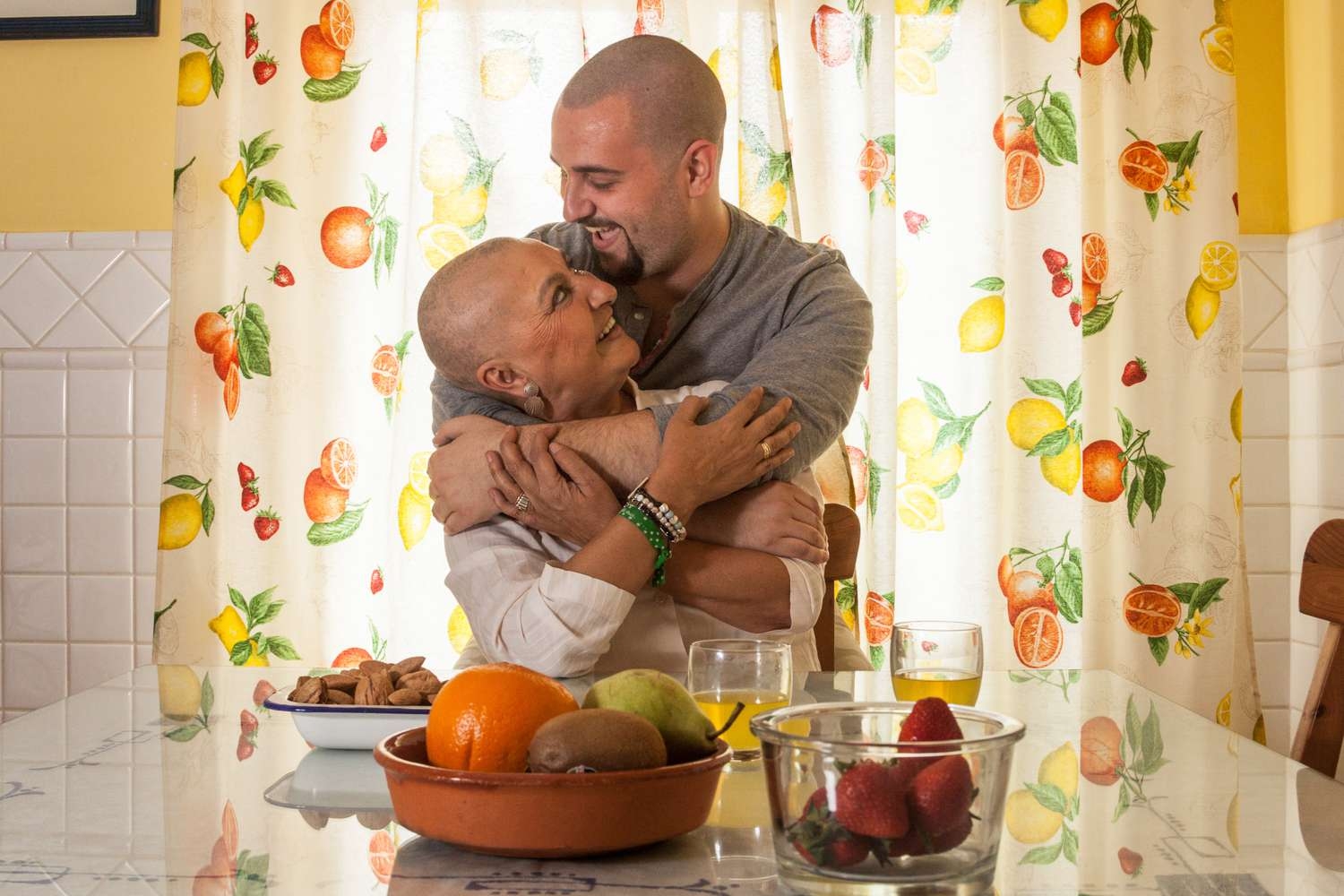Supporting a loved one diagnosed with cancer is a journey that requires empathy, patience, and understanding. As they face physical, emotional, and mental challenges, your presence and actions can provide significant comfort and encouragement. However, knowing the right approach is essential, as even well-intended gestures or words can sometimes have unintended effects.
This guide outlines practical do’s and don’ts for helping a loved one through their cancer journey, offering insights on effective ways to provide support, avoid common pitfalls, and help them feel genuinely cared for and understood.
1. Do Listen More Than You Talk
One of the most meaningful ways to support a loved one with cancer is by being a good listener. They may need someone to talk to about their feelings, fears, and frustrations without interruption or unsolicited advice.

Why Listening Matters
- Provides Emotional Release: Many cancer patients face intense emotions. Offering a listening ear allows them to process these feelings openly.
- Helps Them Feel Understood: Listening attentively shows that you care about their experience and respect their perspective.
- Encourages Open Communication: By giving them space to express themselves, you create an environment where they feel safe discussing anything they need.
Avoid interrupting, and remember that sometimes, they just need to vent without receiving advice in return.
2. Don’t Offer Unsolicited Advice or Treatment Suggestions
When a loved one is facing cancer, it’s natural to want to help by suggesting treatments, diets, or other remedies you’ve heard about. However, giving unasked-for advice can sometimes feel overwhelming or even dismissive to them.
The Problem with Unsolicited Advice
- Adds Pressure: They may already feel pressure from doctors and family. Extra suggestions can make them feel they’re not doing enough.
- Can Feel Overwhelming: Too much information, especially about unverified treatments, can increase stress and confusion.
- Might Be Insensitive: Offering advice about alternative treatments could inadvertently suggest they’re not handling their diagnosis well.
Instead, respect their medical decisions and support them in following their chosen treatment plan.
3. Do Respect Their Feelings and Choices

Cancer treatment decisions are highly personal and depend on factors unique to each individual. It’s essential to support their choices, whether they opt for surgery, chemotherapy, radiation, or other therapies, even if these decisions differ from what you might consider.
Ways to Show Respect
- Accept Their Choices: Even if you disagree, avoid questioning or challenging their decisions about treatment or lifestyle.
- Support Their Boundaries: Some patients may want privacy or limited visits, while others might prefer more company. Respect whatever boundaries they set.
- Avoid Judgment: Choices around diet, activity levels, and treatment options can vary widely; what matters most is that they feel empowered to make decisions best for them.
Respecting their autonomy in decision-making helps them feel in control and supported in their journey.
4. Don’t Make Comparisons to Other People’s Experiences
One common mistake is to compare a loved one’s cancer experience with someone else’s. Every cancer journey is unique, and no two cases are exactly alike, even if the diagnosis appears similar.
Why Comparisons Are Unhelpful
- Oversimplifies Their Experience: Each case involves different factors, including the type, stage, and individual health.
- May Cause Anxiety or Frustration: Comparisons might unintentionally minimize their experience or make them feel pressured to match someone else’s outcome.
- Misses the Personal Element: Every patient’s emotional and physical journey is personal. Avoiding comparisons shows you respect their unique challenges.
Instead, focus on their specific situation and avoid bringing up unrelated cases or outcomes.
5. Do Offer Practical Help and Be Specific
Offering practical assistance can alleviate some of the burdens they may face. Rather than saying “Let me know if you need anything,” offer specific help they can easily accept or decline.
Examples of Practical Support
- Meals and Groceries: Offer to prepare meals, handle grocery shopping, or pick up prescriptions.
- Transportation: Many patients appreciate offers for rides to and from appointments, which can be especially tiring.
- Household Chores: Help with tasks like cleaning, laundry, or yard work, which can become overwhelming during treatment.
By offering specific types of support, you make it easier for them to say yes, relieving stress in practical ways.
6. Don’t Dwell on the Illness
While it’s essential to acknowledge their diagnosis, talking excessively about the illness can be exhausting for them. Instead, focus on positive aspects of life and maintain as much normalcy as possible.
Keeping the Focus Balanced
- Celebrate Good Moments: Share everyday stories, funny moments, and talk about things outside of cancer.
- Avoid Over-Sympathizing: Constantly expressing pity can be disheartening and make them feel defined by the disease.
- Engage in Normal Activities: If possible, continue activities they enjoy, such as watching movies, playing games, or going for short walks, to provide a sense of normalcy.
Remember, your loved one is more than their diagnosis, and they might appreciate conversations that remind them of their full life beyond cancer.
7. Do Educate Yourself About Their Condition
Learning about their type of cancer, treatment side effects, and other relevant details can be incredibly supportive. When you understand more, you’re better equipped to provide empathy and knowledgeable assistance.
Benefits of Educating Yourself
- Shows Genuine Interest: Taking the time to learn about their condition demonstrates that you care deeply about what they’re going through.
- Enhances Communication: Understanding their treatment makes it easier to discuss their journey respectfully and effectively.
- Reduces Misunderstandings: With more knowledge, you’ll likely avoid misconceptions or assumptions that could create discomfort.
Use reputable sources to learn, but avoid overwhelming them with excessive medical details unless they’re open to discussing it.
8. Don’t Ignore the Caregiver’s Needs
If a family member or friend is primarily responsible for caregiving, be mindful of their needs, too. Caregivers often face intense emotional and physical demands, which can impact their well-being.
Ways to Support Caregivers
- Offer Respite: Give them breaks by spending time with the patient, allowing the caregiver to rest or attend to their own needs.
- Provide Emotional Support: Caregivers also need someone to talk to. Offer a listening ear if they need to share their struggles.
- Assist with Tasks: Helping with chores or errands can alleviate some of the caregivers’ workload, reducing their stress.
Supporting caregivers ensures that they remain resilient and capable of providing the best care possible.
9. Do Acknowledge and Validate Their Emotions
Cancer patients may experience a range of emotions, from hope to fear, frustration, or anger. Validating these emotions can be powerful in helping them feel understood and supported.
How to Acknowledge Emotions
- Empathetic Responses: Respond with phrases like, “I can’t imagine what you’re going through, but I’m here for you.”
- Allow Emotional Expression: Be patient and let them express whatever they feel without judgment.
- Avoid Trying to “Fix” Emotions: They don’t need you to make their feelings go away; they need someone who can sit with them through it.
Acknowledging their emotions allows them to feel supported and understood, which is invaluable during challenging times.
10. Don’t Forget Self-Care and Boundaries
Supporting a loved one with cancer can be emotionally and physically draining. Remember to practice self-care to stay resilient and maintain a healthy balance.
Importance of Self-Care for Supporters
- Maintain Your Health: Staying well-rested, eating properly, and taking breaks ensures you’re capable of long-term support.
- Set Healthy Boundaries: It’s okay to say no if you’re overwhelmed; caring for yourself is essential to caring for others.
- Seek Support if Needed: Talking to a therapist or support group can provide an outlet for your emotions.
Self-care isn’t selfish—it’s a necessary step to maintain your strength and ensure you’re able to offer consistent support.
Conclusion: Providing Compassionate, Thoughtful Support
Supporting a loved one through their cancer journey involves patience, empathy, and mindful actions. By listening, respecting their boundaries, offering practical help, and maintaining balanced conversations, you can create a positive impact on their experience. Small gestures, sincere empathy, and educated support make a world of difference in helping them feel less isolated and more empowered. Remember, showing up in a compassionate and thoughtful way is one of the most valuable gifts you can offer, both to your loved one and to yourself.

Leave a Reply